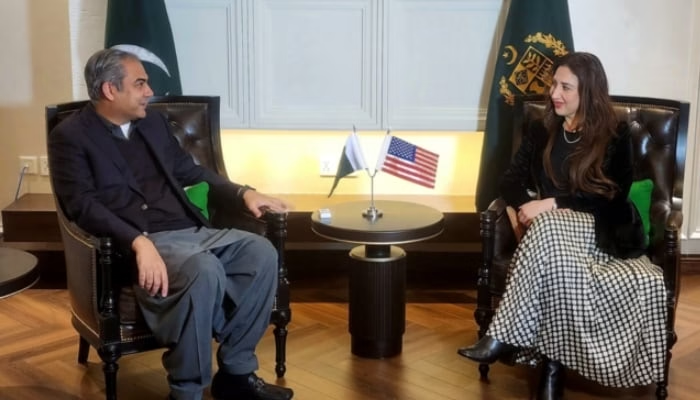The Jamiat Ulema-e-Islam (JUI) has officially denied rumors of a forward bloc forming within the party over the proposed 26th Constitutional Amendment, putting to rest speculations that a division exists among its members. Recent reports had surfaced suggesting that some of the party’s MPs were leaning towards supporting judicial reforms, an area that is part of the proposed constitutional changes. However, JUI’s central leadership has come forward to refute these claims, maintaining that the party is unified on its stance.
Official Response from JUI Leadership
In an interview with Geo News, Aslam Ghori, the spokesperson and central leader of JUI, emphasized that the party remains in close contact with its members and is operating in accordance with a shared vision. He categorically denied the existence of a forward bloc within the party, dismissing reports that suggested otherwise. “We are in contact with all our party members,” Ghori said, reaffirming the unity within JUI.
Out of the eight Members of the National Assembly (MNAs) and five Senators representing JUI, Ghori noted that only Senator Abdul Ghafoor is currently out of touch with the party leadership. He assured, however, that efforts are being made to reach him. “We are trying to contact Senator Abdul Ghafoor,” Ghori stated, highlighting that no significant internal divisions exist within the party.
Maulana Fazlur Rehman’s Stance on Party Discipline
JUI Chief Maulana Fazlur Rehman has also taken a firm stance on the matter, according to Aslam Ghori. Rehman has made it clear to all party members that they must adhere to party policy and vote accordingly under Article 63A of the Constitution of Pakistan, which governs party discipline and prevents defection on key issues such as votes of confidence, constitutional amendments, or the annual budget. Rehman’s instructions underscore his emphasis on unity and loyalty within JUI ranks as the party navigates the complex political terrain surrounding the proposed 26th Constitutional Amendment.
Article 63A serves as a legal safeguard against defection, disqualification, and disloyalty within parliamentary parties. It mandates that all members of a political party must vote in line with the party’s official stance during key parliamentary decisions. JUI’s leadership has invoked this article to ensure that no members deviate from the party line during the debate over judicial reforms or the constitutional amendment.
Rumors of a Forward Bloc and Support for Judicial Reforms
The speculations surrounding a potential forward bloc in JUI began circulating after sources claimed that 4-5 MPs from the party expressed interest in supporting the judicial reforms outlined in the 26th Constitutional Amendment. According to these sources, some members within JUI were inclined to favor reforms that would reshape the judiciary, especially the establishment of a constitutional division within the Supreme Court and changes to judicial appointments.
While the amendment aims to address issues related to judicial oversight and the process for selecting judges, it has proven to be a divisive topic across the political spectrum. Various parties and political factions have voiced different opinions on how the judiciary should be reformed and the extent to which the amendment would impact the country’s legal framework.
Sources further claimed that these MPs felt JUI should adopt a more progressive stance in favor of judicial reforms, despite the party’s traditionalist and conservative outlook. They argued that such reforms could bring more balance and fairness to the judiciary, potentially benefiting the broader legal system in Pakistan. However, the official stance of JUI, as reiterated by Maulana Fazlur Rehman, remains opposed to supporting the proposed amendments as they currently stand.
JUI’s Approach to Constitutional Amendments
JUI’s reluctance to support the 26th Constitutional Amendment is consistent with its broader approach to constitutional changes in Pakistan. As a conservative political party, JUI has often prioritized safeguarding Islamic principles in legislation and maintaining the status quo in matters related to national governance and judicial affairs. Any reforms that could disrupt the traditional framework of the judiciary or interfere with established religious laws are likely to face resistance from the party’s leadership.
Moreover, JUI’s political influence is deeply rooted in its commitment to Islamic values and principles. The party has historically been cautious about endorsing constitutional amendments or legal reforms that could undermine its ideological stance. Therefore, while some individual MPs within JUI may have voiced differing opinions on judicial reforms, the party as a whole remains steadfast in its opposition to the proposed amendment.
Party Unity Reaffirmed
Despite rumors and internal differences being speculated upon, the leadership of JUI has moved quickly to dispel any doubts about party unity. Aslam Ghori’s clear communication about the absence of a forward bloc within the party, coupled with Maulana Fazlur Rehman’s strict directive under Article 63A, has reinforced JUI’s unified position on the 26th Constitutional Amendment.
The proposed judicial reforms may have sparked internal debate, but JUI is determined to maintain its discipline and cohesion, ensuring that all party members vote according to the official party policy. Whether or not further discussions will take place within the party on supporting judicial reforms remains to be seen, but for now, JUI stands as a united front in the complex political scenario surrounding Pakistan’s constitutional amendments.



